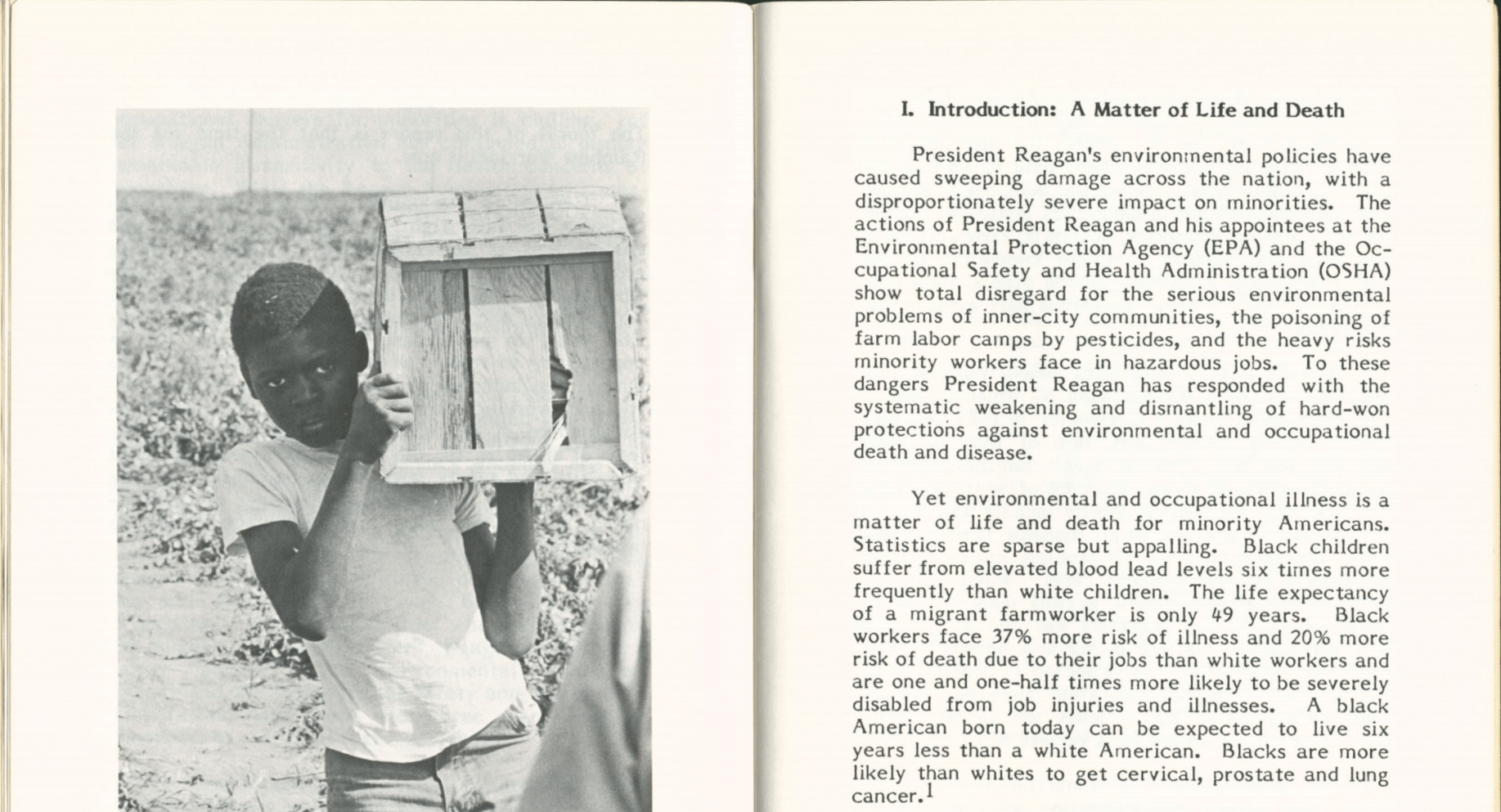 Loading...
Loading...
Segregated Pollution
Robert J. Bullard defines environmental racism as “any policy, practice, or directive that differentially affects or disadvantages (whether intended or unintended) individuals, groups, or communities based on race or color.” Today’s environmental justice movement can be traced to the work of Dr. Bullard (and others) in the 1980s that sought to address the disproportionate impacts of environmental waste and pollution on communities of color in the United States. This 1984 report, Reagan, Toxics and Minorities from the Urban Environment Conference, “an alliance of labor, minority, and environmental organizations,” offers insight into the specific health risks encountered by African American, Latin American, and Native American communities, both at home and in the workplace. The report also traces the specific policy decisions of the Reagan administration that enhance the environmental risks within these communities, including exposure to lead, radiation, and pesticides. Dr. Bullard notes that one’s zip code remains the “most potent predictor of an individual’s health and well-being,” which includes vulnerability to the negative consequences of climate change and COVID-19.
Urban Environment Conference, Inc.
Reagan, Toxics and Minorities: A Policy Report
September, 1984
United Steelworkers of America, Legislative Department records
CO2 PPM in 1984: 344
Additional Information
Dr. Robert Bullard was scheduled to be the 2020 keynote speaker at Penn State’s annual Colloquium on the Environment, which was postponed due to the COVID-19 pandemic. Dr. Bullard was later interviewed for WPSU’s Take Note, which can be heard online at: https://radio.wpsu.org/post/take-note-robert-bullard-critical-role-environmental-justice.
For resources, updates, and a timeline on environmental justice issues in the United States, please view the NAACP’s Environmental and Climate Justice page at: https://www.naacp.org/issues/environmental-justice/.
